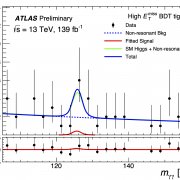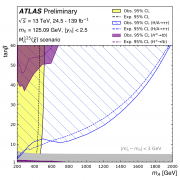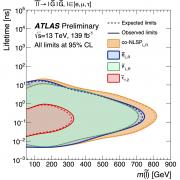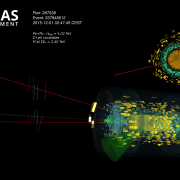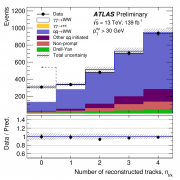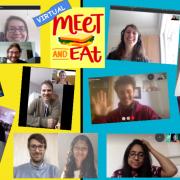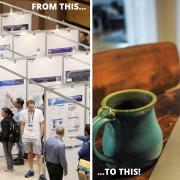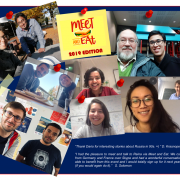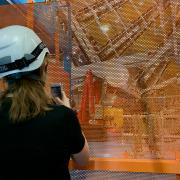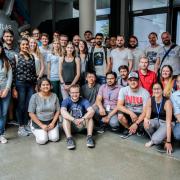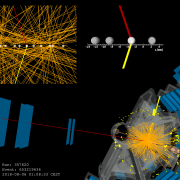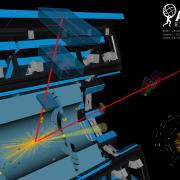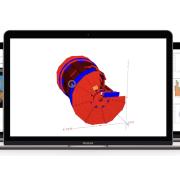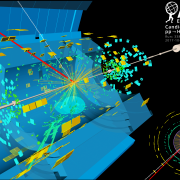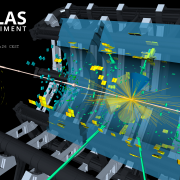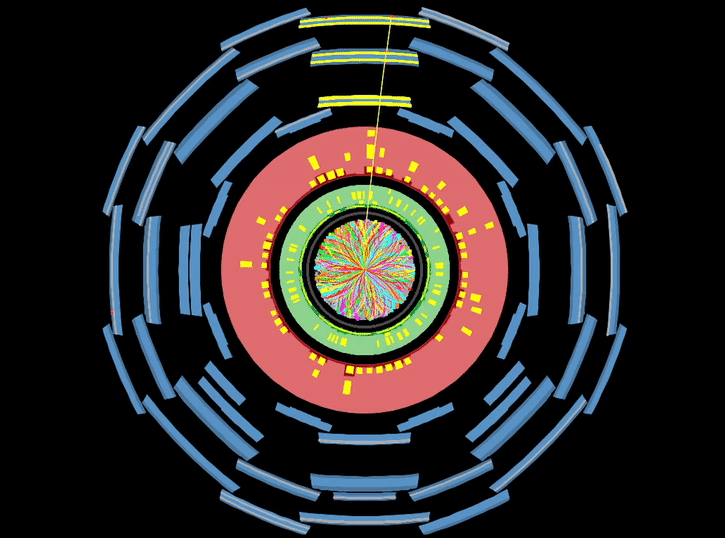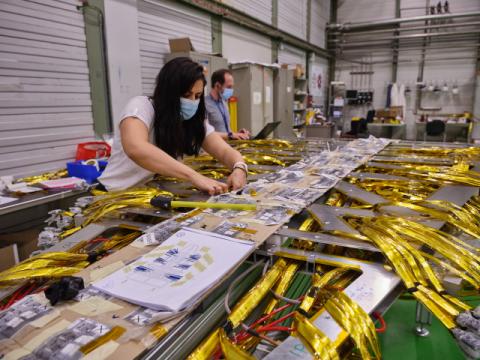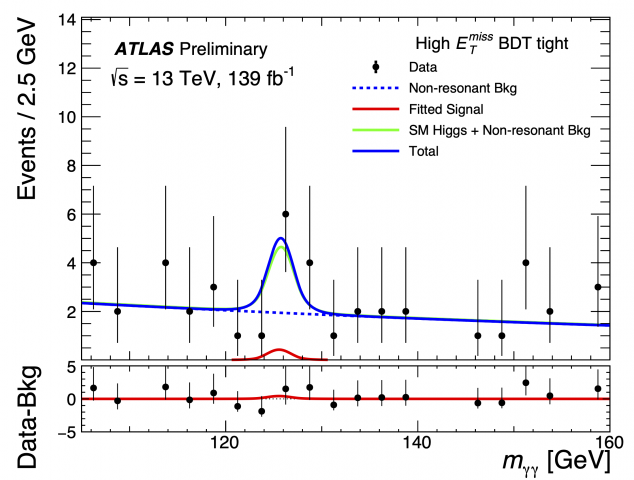Access to Collaboration Site and Physics Results
ATLAS News

Handing In the ATLAS Keys
– After completing more than 250 work packages concerning the whole detector and experimental site, the ATLAS and CERN teams involved with Long Shutdown 1 (LS1) operations are now wrapping things up before starting the commissioning phase in preparation for the Large Hadron Collider's restart. The giant detector is now more efficient, safer and even greener than ever thanks to the huge amount of work carried out over the past two years.Read more →
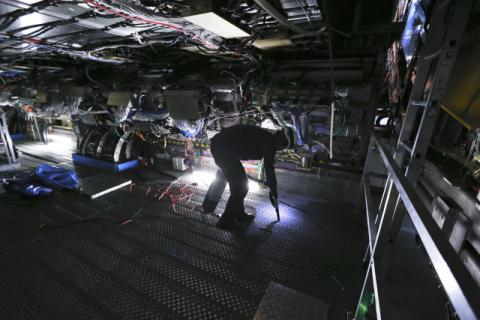
"Dirt Detectives"
– For five days last week, 110 ATLAS collaborators worked in 10 different shifts to help clean and inspect the detector and the cavern that houses it before the toroid magnets are turned on.Read more →
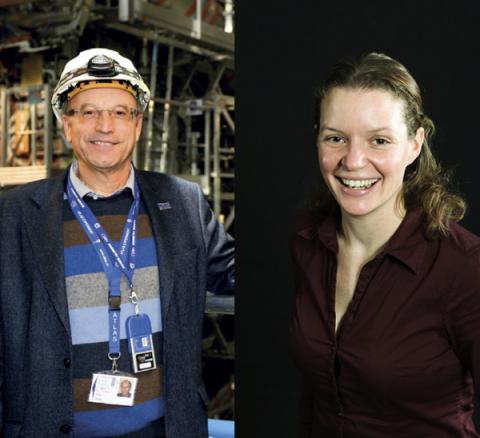
The ATLAS experiment on Scholarpedia
– An overview of the ATLAS experiment written by physicists Monica Dunford and Peter Jenni has been published on Scholarpedia. The article is the first in the series on experimental high-energy physics that the editors of the subject hope to host on the website.Read more →

Join the Higgs Hunt
– Higgs Hunters, the first particle physics venture on Zooniverse, a citizen science project, has been launched in collaboration with the University of Oxford, New York University and the ATLAS Experiment. Higgs Hunters invites online volunteers to participate in studying the properties of the new boson, which may hold clues as to what lies beyond our current understanding of the universe.Read more →
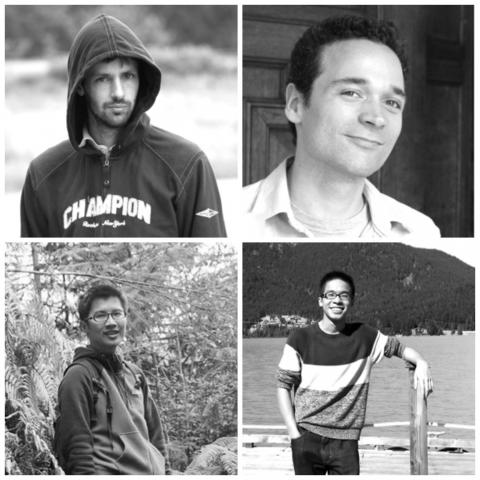
Machine Learning Wins the Higgs Challenge
– The winner of the four-month long Higgs Machine Learning Challenge, launched on 12 May, is Gábor Melis from Hungary, followed closely by Tim Salimans from The Netherlands and Pierre Courtiol from France. They will receive cash prizes, sponsored by Paris-Saclay Centre for Data Science and Google, of $7000, $4000, and $2000 respectively. The three winners have been invited to participate at the Neural Information Processing Systems conference on 13 December in Canada.Read more →
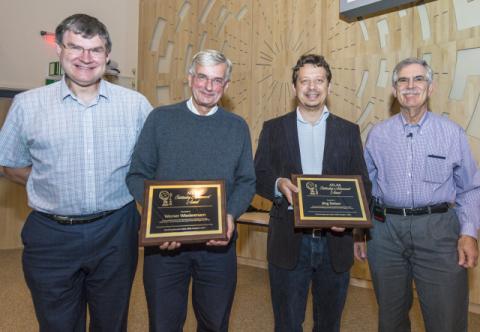
ATLAS Awards Achievements in Run 1
– The ATLAS Outstanding Achievement Awards 2014 were given on 9 October to five individuals or teams of physicists and engineers for their contributions during the Large Hadron Collider's first run in all areas of ATLAS except physics analyses.Read more →

Five schools virtually visit ATLAS, CMS and IceCube
– The ATLAS and CMS experiments hosted a virtual visit together with the IceCube Experiment in the South Pole for students from five different European schools on 2 October. The visit allowed the students to interact with researchers in both the LHC experiments and the IceCube experiment. The virtual visit was a second event in the Open Discovery Space project series' 'Bringing Frontier Science to Schools'.Read more →
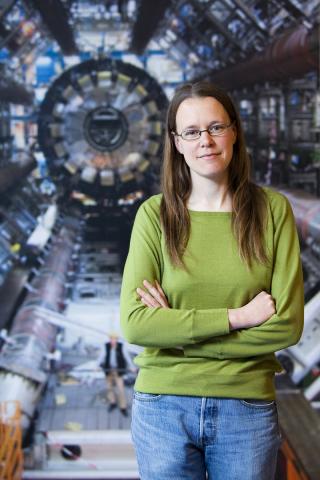
ATLAS Physicist Wins Young Scientist Prize
– For her contribution toward the discovery of the Higgs boson, Kerstin Tackmann was awarded the Young Scientist Prize in Particle Physics 2014 by the International Union of Pure and Applied Physics.Read more →
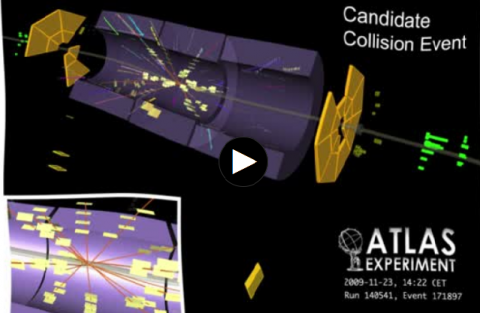
Music of the "LHC"
– The ATLAS & CMS experiments celebrate the second anniversary of the discovery of the Higgs boson. Here, are some images of the path from the LHC's startup to the Nobel Prize, featuring a musical composition by Roger Zare, performed by the Donald Sinta Quartet, called 'LHC'. Happy Discovery Day!Read more →
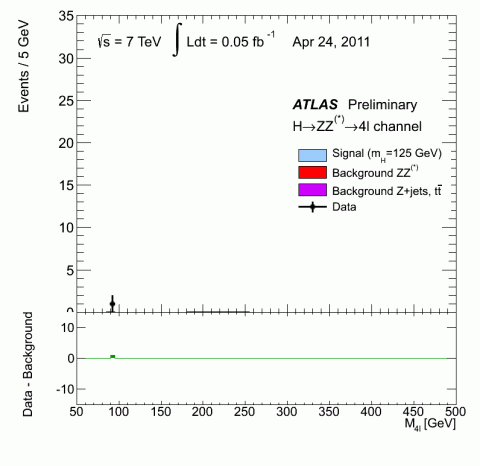
Second anniversary of the Higgs boson discovery!
– It’s been two years since the ATLAS and CMS experiments at CERN jointly announced the discovery of a new boson consistent with the Higgs particle of the Standard Model. Since then, the Higgs boson has been intensely examined. We’ve measured its spin, its mass, its lifetime, and observed its decay into bosons and fermions. In the next run of the Large Hadron Collider, we hope to learn more about how it interacts with other particles and to make many more precise measurements of its properties. By doing, we hope to extend the limits of our current understanding of the fundamental components of nature, and to seek clues for discovery.Read more →


